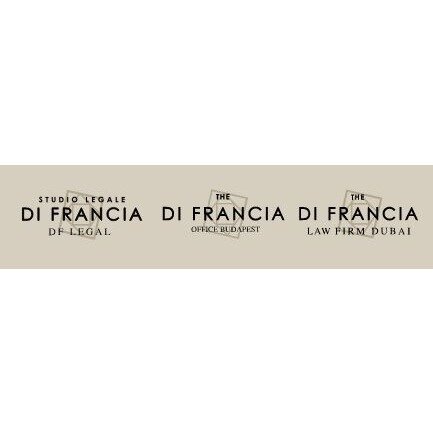Best Structured Finance Lawyers in Bologna
Share your needs with us, get contacted by law firms.
Free. Takes 2 min.
List of the best lawyers in Bologna, Italy
About Structured Finance Law in Bologna, Italy
Structured Finance refers to complex financial instruments and transactions created to facilitate tailored financing solutions for corporations, financial institutions, and public entities. In Bologna, Italy, Structured Finance activities are often used to support large-scale infrastructure projects, real estate deals, corporate restructuring, and securitisation of assets. Professionals and companies operating in this sector must navigate a unique blend of Italian, European, and international financial regulations. Local laws work in tandem with EU directives and global financial standards, making this legal field both sophisticated and dynamic.
Why You May Need a Lawyer
Seeking a lawyer with expertise in Structured Finance is vital for several reasons:
- Designing and executing securitisation transactions, including issuing asset-backed securities
- Negotiating complex loan structures and syndicated loans
- Ensuring compliance with local, national, and EU financial regulations
- Restructuring corporate debt or refinancing assets
- Assessing and mitigating legal risks connected to financial products
- Addressing cross-border financing requirements
- Litigating disputes or handling regulatory investigations
Engaging a legal expert from the outset can help safeguard interests, prevent costly mistakes, and ensure that transactions are carried out smoothly and correctly.
Local Laws Overview
Structured Finance in Bologna, Italy, is governed by a combination of Italian civil and financial law, as well as regulatory standards set by the Bank of Italy and the Commissione Nazionale per le Società e la Borsa (CONSOB). Some key legal aspects include:
- Securitisation Law: Law No. 130/1999 regulates asset securitisation, stipulating requirements for originators, investors, and servicers.
- Banking and Financial Services Regulation: The Testo Unico Bancario (TUB) and Testo Unico della Finanza (TUF) outline the rules for institutions and financial intermediaries, including capital adequacy, transparency, and conduct.
- EU Directives: Regulations such as MIFID II, CRR, and CRD IV apply to financial market transactions, impacting documentation and reporting duties.
- Insolvency and Bankruptcy Law: Italian bankruptcy regulations may affect the enforceability and structuring of security interests.
- Tax Implications: Structured Finance transactions often involve complex tax considerations, such as VAT, withholding tax, and transfer pricing regulations in Italy.
Local authorities in Bologna enforce these laws, with oversight by national and European regulatory bodies.
Frequently Asked Questions
What is Structured Finance?
Structured Finance is the process of creating complex financial instruments, such as securitisations or derivatives, to allocate risk and raise capital, typically for large-scale or bespoke transactions.
Who typically uses Structured Finance services in Bologna?
Corporations, banks, real estate developers, local government bodies, and investors often seek Structured Finance solutions to support growth, investment, or restructuring.
Is Structured Finance legal in Italy?
Yes, Structured Finance is legal when conducted in compliance with Italian, EU, and international laws, including regulatory and reporting requirements.
What are common Structured Finance products in Bologna?
Products include asset-backed securities, mortgage-backed securities, collateralised debt obligations, syndicated loans, and project finance structures.
How is a securitisation transaction regulated?
Securitisation is regulated by Law No. 130/1999, which sets requirements for asset transfer, investor protection, information disclosure, and reporting.
Do I need regulatory approval for a Structured Finance transaction?
Certain transactions may require notification or approval from authorities such as CONSOB or the Bank of Italy, especially if they involve public offerings or regulated entities.
How can a lawyer help with risk assessment?
A Structured Finance lawyer can identify legal and financial risks, provide guidance on risk allocation, and draft documentation to protect all involved parties.
What documentation is typically required?
Transactions usually involve complex contracts such as offering circulars, servicing agreements, trust deeds, and security documents, all requiring precise legal drafting.
Can these finance structures involve international parties?
Yes, cross-border transactions are common and can involve parties from multiple jurisdictions. Local laws must be harmonised with international standards.
What happens if there is a dispute?
If a dispute arises, resolution mechanisms can include negotiation, mediation, arbitration, or litigation in Italian courts, depending on contract terms and applicable law.
Additional Resources
If you are seeking further information or guidance on Structured Finance in Bologna, consider consulting the following resources:
- Bank of Italy (Banca d'Italia): Supervises banking and financial markets, publishes relevant regulations and guidelines
- CONSOB: Oversees securities and exchange regulation, offering rules on public offerings and disclosures
- Italian Ministry of Economy and Finance: Provides information on finance laws, tax regulations, and official announcements
- Associazione Bancaria Italiana (ABI): Represents the banking sector and offers insights into industry standards
- Ordine degli Avvocati di Bologna: Listing of qualified attorneys specialising in Structured Finance
Next Steps
If you are considering a Structured Finance transaction or require legal advice in Bologna:
- Identify your specific needs and gather all relevant documents
- Research and select a law firm or attorney with expertise in Structured Finance
- Book an initial consultation to discuss your objectives and potential legal challenges
- Confirm the lawyer's experience with local and cross-border transactions
- Ensure transparent communication about fees and ongoing assistance
Taking early legal advice can help structure your transaction efficiently, mitigate risks, and ensure full compliance with Italian and EU regulations.
Lawzana helps you find the best lawyers and law firms in Bologna through a curated and pre-screened list of qualified legal professionals. Our platform offers rankings and detailed profiles of attorneys and law firms, allowing you to compare based on practice areas, including Structured Finance, experience, and client feedback.
Each profile includes a description of the firm's areas of practice, client reviews, team members and partners, year of establishment, spoken languages, office locations, contact information, social media presence, and any published articles or resources. Most firms on our platform speak English and are experienced in both local and international legal matters.
Get a quote from top-rated law firms in Bologna, Italy — quickly, securely, and without unnecessary hassle.
Disclaimer:
The information provided on this page is for general informational purposes only and does not constitute legal advice. While we strive to ensure the accuracy and relevance of the content, legal information may change over time, and interpretations of the law can vary. You should always consult with a qualified legal professional for advice specific to your situation.
We disclaim all liability for actions taken or not taken based on the content of this page. If you believe any information is incorrect or outdated, please contact us, and we will review and update it where appropriate.














